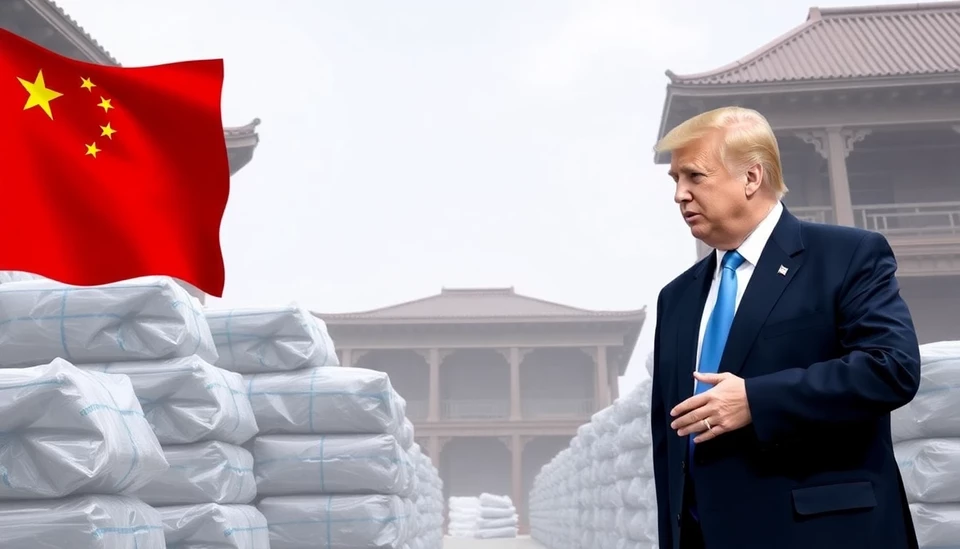
In a recent development amidst the escalating trade tensions between the United States and China, Beijing has strongly objected to the ongoing characterization of fentanyl as a pivotal issue used by the Trump administration to justify increasing tariffs. This reaction comes in light of the U.S. imposing significant tariff hikes, which have been linked to China's handling of opioid production, particularly the synthetic opioid, fentanyl.
The Chinese government has asserted that the accusations directed at it regarding the supply and distribution of fentanyl are unfounded and serve as a pretext for what they describe as unfair trade practices by the U.S. officials. The trade relationship between the two nations has been increasingly strained, particularly under the backdrop of a consuming opioid crisis affecting many American communities.
Chinese officials have raised concerns, stating that the classification of fentanyl as a weapon in the trade war undermines international cooperation surrounding drug control measures. They emphasized a commitment to addressing synthetic opioid production domestically and collaborating with the U.S. to combat the proliferation of illegal substances. However, the narrative coming from Washington has often highlighted China as the primary source of fentanyl, an assertion that has fueled contentious disagreements between the two economic giants.
Additionally, tensions have been exacerbated by the Trump administration's approach, which critics argue relies heavily on punitive tariffs rather than collaborative dialogue. The tariffs, considered as a means of leveraging economic pressure, have been challenged by various stakeholders who fear they might ultimately harm American consumers and businesses rather than achieve their intended purpose of curbing fentanyl distribution.
As both countries navigate the fallout from years of trade disagreements, the situation remains delicate. The potential for diplomatic discussions continues to hang in the balance. The Chinese stance against the fentanyl connection reflects a broader desire to disengage from being seen solely through the lens of illicit drug production.
Looking forward, this chapter in trade relations may set the stage for further negotiations as officials from both nations seek avenues to ease tensions while addressing the pressing issue of drug abuse and trafficking. Critics of the current strategies implemented by the Trump administration suggest that a more constructive approach focusing on collaboration, as opposed to confrontation, may yield better outcomes for both nations.
Overall, the claims regarding fentanyl are emblematic of a larger political and economic struggle, showcasing the intersection between international relations and domestic health crises. As the two superpowers wrestle with these intertwined issues, global markets watch closely for any sign of resolution that could potentially alter the trajectory of ongoing trade practices.
#TariffTensions #ChinaUSTrade #FentanylDebate #TradeWar #OpioidCrisis #TrumpAdministration
Author: Laura Mitchell
